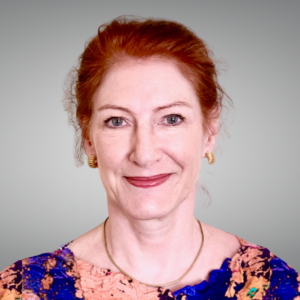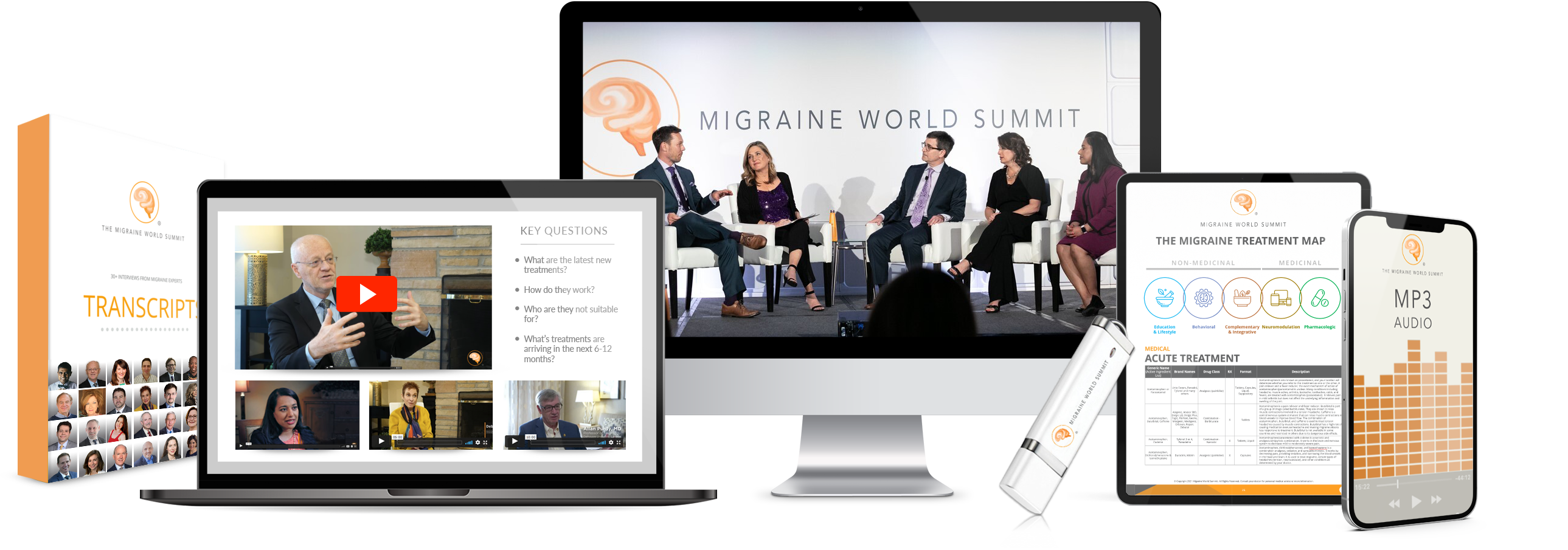Menopause, Hormones and Migraine
You are currently watching a preview of this interview. Unlock the full version by upgrading to an Access Pass bundle! Get FREE access to 8 expert interviews from Day 1 and Day 2 when you register today!
Key Questions
- What are hormones?
- How do a woman’s hormones change over time?
- Is it true that for those with menstrual migraine, attacks will fade after menopause?
- What determines whether you will improve in menopause or not?
- Why can perimenopause be difficult with migraine?
- What myth is there are about menopause and estrogen levels?
- What role does estrogen play in monthly migraine attacks?
- What is the average age of perimenopause and menopause?
- Do women with hormonal migraine have abnormal hormones levels?
- How do you know if you have abnormal hormonal function and balance?
- How can hormonal migraine be managed?
- What is the most important first step to treatment?
- What is HRT? And how can it be used?
- What are bioidentical hormones and how safe are they?
- What type of medical expert should someone work with for hormonal migraine?
- How effective are treatment options?
- How can a hysterectomy make migraine worse?
- What supplements and natural alternatives have been shown to help?
Interview Notes
Find more about Anne MacGregor, MD and her work here:

Anne MacGregor, MD
Professor
Centre for Reproductive Medicine, St Bartholomew’s Hospital, London, UK
Dr. Anne MacGregor is a world leader in studying the link between the menstrual cycle and migraine. She holds a doctorate in medicine from the University of London and a master’s in medical education from the Royal College of Physicians and University College London. Dr. MacGregor is an honorary professor at the Blizard Centre for Neuroscience, Surgery and Trauma; the Blizard Institute of Cell and Molecular Science; and Barts and The London School of Medicine and Dentistry. She has published more than 200 research papers, authored five books, co-authored an additional five books, and co-edited three books.
Dr. MacGregor has carried out extensive research into drug treatments for migraine and cluster headache, including significant research into menstrual migraine. Her doctoral thesis explored the role of estrogen in migraine, which led to the development of research criteria for menstrual migraine that were adopted by the International Headache Society in 2004. She has been awarded the Elizabeth Garrett Anderson Award for her extraordinary contribution to relieving those affected by the burden of headache and has received the Special Recognition Award and Honorary Life Membership from the International Headache Society. Dr. MacGregor regularly contributes to media discussions on the topic of migraine, particularly menstrual migraine.

Purchase full access to the entire 2024 Summit. Includes:
- All expert interviews with separate audio (MP3) files & transcripts
- Lifetime on-demand access with no annual fee to 2024 Summit
- Interview Summaries
- Treatment Guidelines
- And much more!





